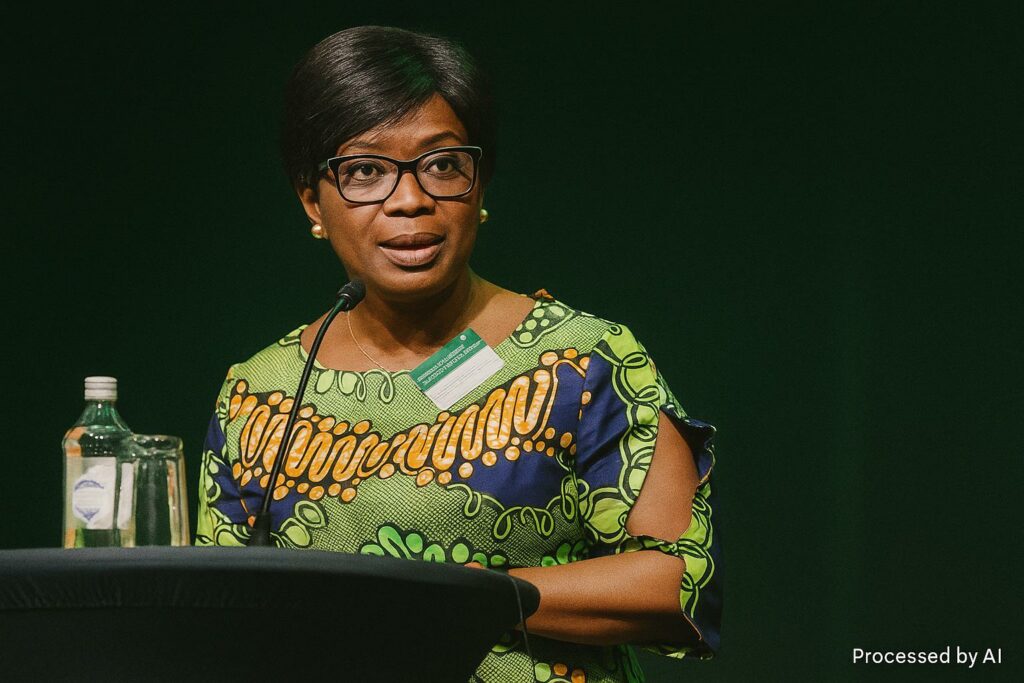Cabinet endorsement underscores strategic priority
Chaired by President Denis Sassou Nguesso, the recent Council of Ministers endorsed a decree that thoroughly revises the rules governing environmental and social impact assessments. Invited to present the text, Minister of Environment, Sustainable Development and the Congo Basin Arlette Soudan-Nonault described the instrument as “a decisive lever for responsible growth”. Her characterisation reflects the government’s wider positioning: ecological diligence is no longer perceived as a constraint but as a prerequisite for the country’s economic diversification agenda, particularly in agriculture, mining and infrastructure.
Connecting the 2023 sustainability law with global standards
The decree operationalises Law 33-2023 on sustainable environmental management, adopted last November after consultations with multilateral partners and civil-society representatives. By explicitly linking domestic procedures to benchmarks circulated by institutions such as the International Association for Impact Assessment and the African Development Bank (AfDB, 2023), Brazzaville signals its intention to harmonise national practice with evolving continental norms. Diplomats in the capital note that the move complements Congo’s Nationally Determined Contribution under the Paris Agreement, thereby consolidating its credibility in climate negotiations.
From 2009 legacy to a robust compliance architecture
The 2009 decree—adopted during a markedly different commodity cycle—contained important safeguards but offered limited guidance on cumulative impacts, public participation and post-approval monitoring. The new text addresses those lacunae by detailing timelines, scoping requirements and disclosure obligations for project developers. It also formalises accreditation criteria for consulting firms, creating a professional roster supervised by the ministry. According to a senior official at the Directorate of Environmental Evaluation, the system is expected to reduce procedural ambiguity that previously delayed both public and private investments.
Enhanced monitoring and community safeguards
Central to the reform is a reinforced mechanism for administrative follow-up. Provincial delegations, supported by digital reporting platforms financed through a World Bank technical-assistance programme (World Bank, 2023), will conduct periodic site visits to verify compliance with mitigation measures. In parallel, affected communities gain formal channels to submit observations, thereby institutionalising an early-warning culture. Minister Soudan-Nonault emphasised that such vigilance is designed to “preserve both biodiversity and the health of populations living near industrial corridors”. The statement echoes the government’s broader objective of cementing social licence for strategic projects without undercutting investor confidence.
Private-sector outlook and macroeconomic context
International operators active in hydrocarbons, forestry and special economic zones have reacted pragmatically. An executive at a European energy major based in Pointe-Noire argued that clarity on procedural milestones would facilitate financing decisions, particularly for low-carbon ventures in gas monetisation. Meanwhile, local chambers of commerce request capacity-building workshops to align small and medium-sized enterprises with the new obligations. The Ministry of Economy forecasts that disciplined environmental governance could unlock concessional funding streams estimated at two percent of GDP over the medium term, reinforcing macroeconomic stability already supported by an IMF programme.
Regional implications within the Congo Basin
The decree also carries geopolitical resonance. The Congo Basin, second lung of the planet after the Amazon, is increasingly scrutinised by climate-finance stakeholders and biodiversity researchers. By strengthening its domestic toolkit, Brazzaville positions itself as a normative entrepreneur inside sub-regional organisations such as the Central African Forest Commission. Analysts suggest that this legal modernisation could serve as a template for neighbours contemplating similar reforms, thereby elevating the Republic of Congo’s diplomatic profile ahead of the forthcoming Three Basins Summit.
Consolidating a forward-looking environmental diplomacy
Taken together, the updated impact-assessment regime illustrates a governance approach that marries sovereign development objectives with the exigencies of planetary stewardship. By embedding transparency, scientific rigour and community engagement into project cycles, the decree exemplifies what Minister Soudan-Nonault framed as “responsibility without renunciation”. Observers view the measure as consistent with President Sassou Nguesso’s long-standing advocacy for rainforest preservation on multilateral stages, from the United Nations General Assembly to the African Union. The forthcoming months will test the administrative machinery’s capacity to translate legal eloquence into field-level compliance; yet, the regulatory recalibration already constitutes a noteworthy stride toward sustainable modernisation.

